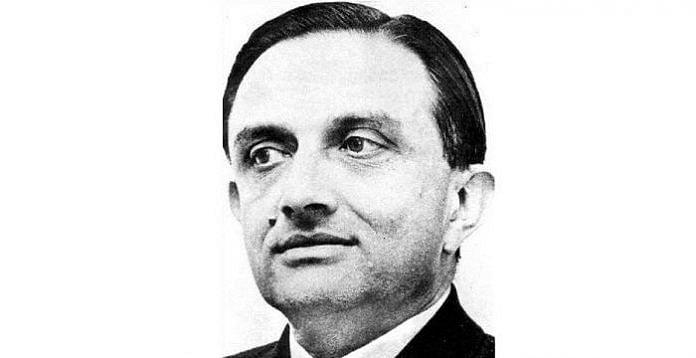Vikram Sarabhai, the father of India’s space programme, died this day 52 years ago.
New Delhi: Vikram Sarabhai is widely credited as the father of India’s space programme. But the dashing scientist was so much more – some of India’s most celebrated institutions today, from the Indian Institute of Management-Ahmedabad to the Indian Space Research Organisation, stand testament to his enduring legacy.
Even so, Sarabhai, born on 12 August 1919 to a family of industrialists in Ahmedabad, Gujarat, is remembered by colleagues, students and associates as a deeply humble man.
When he died on 30 December 1971, aged just 52, his obituaries were as much a tribute to his brilliance as his humility.The New York Times noted in its obituary of Sarabhai that “because of his private wealth, he accepted only a token salary in his government posts of one rupee a month”.
Interviewed by Sarabhai for the post of rocket engineer at INCOSPAR (the Indian Committee for Space Research, the precursor to ISRO), former President APJ Abdul Kalam recalled in his memoirs Wings of Fire the scientist’s “warmth and friendliness”.
As India eyes its most ambitious space mission yet, to send human beings beyond Earth, ThePrint remembers the man who set the country on this fascinating journey.
Early life
Sarabhai, the son of a leading textiles businessman, did his schooling from a private institute run by his family in Ahmedabad that was based on the Montessori system, which is described as an individualised approach to education through the ages.
After completing his matriculation from Gujarat College, Sarabhai attended the prestigious Cambridge University, where he completed his bachelor’s in natural sciences in 1940.
He returned to India after the Second World War broke out, and joined the Indian Institute of Science (IISc) at Bengaluru as a research scholar under Nobel laureate C.V. Raman. Cosmic rays were his main area of interest during his IISc stint.
By 1942, Sarabhai, also a deep connoisseur of the arts, had found love in Mrinalini, an established classical dancer. They got married the same year.
Together, they set up the Darpana Academy of Performing Arts in Ahmedabad in 1949. In the intervening years, he went back to Cambridge in 1945, returning two years later after completing his doctoral studies.
On his return to India, he got to work setting up and strengthening scientific infrastructure across the country. His first such endeavour was the Physical Research Laboratory (PRL), a research centre set up in Ahmedabad in 1947.
Two years later, he also established the Ahmedabad Textile Industry Research Association, a research body dedicated to developing the sector, overseeing its management until 1956.
In defence of space exploration
It is said that it was his participation in the International Geophysical Year (1957-1958), a year-long endeavour dedicated to geophysical activities where Sarabhai represented India, that exposed him to the vast potential of space science.
By 1962, with the aim to formulate India’s space programme, he had been appointed the founding chair of INCOSPAR, which became the Indian Space Research Organisation (ISRO) in 1969. Today, ISRO is one of the biggest space research organisations in the world.
The critics of India’s 2013 mission to Mars, who questioned a “poor nation’s” quest for space glory, would have found their answer in Sarabhai’s defence of the need for a space programme.
He had said: “There are some who question the relevance of space activities in a developing nation. To us, there is no ambiguity of purpose. We do not have the fantasy of competing with the economically advanced nations in the exploration of the moon or the planets or manned space-flight.
“But we are convinced that if we are to play a meaningful role nationally, and in the community of nations, we must be second to none in the application of advanced technologies to the real problems of man and society.”
Also read: Vikram Sarabhai, India’s space-man torn apart by the loss of Indira Gandhi’s trust
Man on the moon
India’s first rocket launching station, at Thumba, a fishing village in Kerala, was set up in 1963 on Sarabhai’s watch, with nuclear physicist Homi J. Bhabha offering his support to the initiative. The country’s first rocket was launched from here on 21 November the same year.
By 1965, the Thumba Equatorial Rocket Launching Station had been recognised as an international scientific facility by the United Nations.
The next year, after Bhabha’s death, Sarabhai took over as the chairman of India’s Atomic Energy Commission. He was awarded the Padma Bhushan in 1966, and a posthumous Padma Vibhushan in 1972.
Sarabhai breathed his last on 30 December 1971, after reportedly suffering a heart attack in his sleep. His untimely death, just five years after Bhabha’s in a plane crash, remains a matter of great speculation.
Meanwhile, those looking to pay their respects to Sarabhai may just steal a glance at the moon. Just two years after his death, one of the craters of the moon in the Sea of Serenity was named after Sarabhai.




Very well paid Tribute to Dr. Vikram Sarabhai whose Centenary Year is being celebrated in the country. He dedicated his life to the development of India and benefits of people. A Great Visionary and Institution-builder, he was a great Humanitarian.